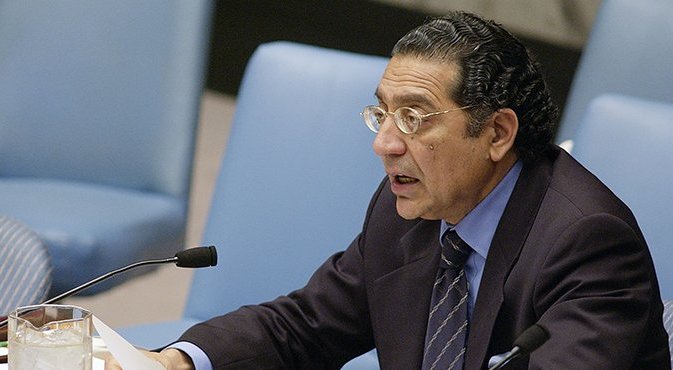UNITED NATIONS, The President of UN Economic Council (ECOSOC), Pakistani Ambassador Munir Akram, has underscored the role of Parliaments in generating momentum towards achieving the anti-poverty Sustainable Development Goals (SDGs) and overcoming the challenges posed by the coronavirus crisis.
“Achieving the sustainable development agenda requires inter-governmental and multi-stakeholder partnerships between national governments, the private sector and the people,” he said in an online address to a two-day meeting of the International Forum of Global Inter-Parliamentary Cooperation which opened in Bukhara, Uzbekistan, on Wednesday.
‘”Such inclusive partnerships, built upon principles, values, and shared goals, that place people and the planet at the centre, are needed at the global, regional, national and local level,” Ambassador Akram told the meeting which is discussing implementation of SDGs.
Noting that global landscape is marked by pervasive inequities, the ECOSOC chief said they have grown since the adoption of the SDGs in 2015 and been further exacerbated by the pandemic.
He therefore called for adequate global action to contain and defeat the virus; recover from the impact of the pandemic; and revive the implementation of the 2030 Agenda, the SDGs, and the global climate and environmental goals.
“Mobilizing the participation and support of parliaments for the global development agenda is urgent,” Ambassador Akram said.
In this regard, he said four areas merited immediate attention:
(1): The Parliaments of the developed countries can ensure that the COVID-19 vaccine is made available to everyone, everywhere, as soon as possible to overcome Covid-19, with scaling up production, supply, distribution, and, above all, emergency mass vaccination programmes in every country and community. A waiver of intellectual property rights on the vaccine must be agreed immediately to enable broader production of the vaccine in developing countries, and close the funding gap of roughly $18.1 billion (as of June 4th) for the ACT accelerator including the COVAX facility;
(2): Parliaments should support adequate financing for sustainable development, through debt suspension and restructuring, the creation of $650 billion in new Special Drawing Rights (SDRs) and the reallocation of unused SDRs to developing countries, longer and larger concessional financing;
(3): Parliaments should support massive investments in sustainable infrastructure as its indispensable to achieve net zero emissions by 2050. Both public, and especially, private sector investments in sustainable infrastructure – in energy, transportation, housing, agriculture, ICT, and other sectors – must be scaled up.
(4): Parliaments must support developing countries to build the capacity to transition into the new world economy – to enter the new global supply chains, to create new and decent jobs, and expand production and productivity. This requires rapid progress in digitalization and investing in digital infrastructure and skills. It implies greater access to advanced technologies and research and development focused on realizing the sustainable development and climate goals.
“We hope that inter-parliamentary cooperation will lead to generating momentum towards achieving the SDGs and overcoming the challenges posed by COVID crisis,” Ambassador Akram added.
Follow the PNI Facebook page for the latest news and updates.









